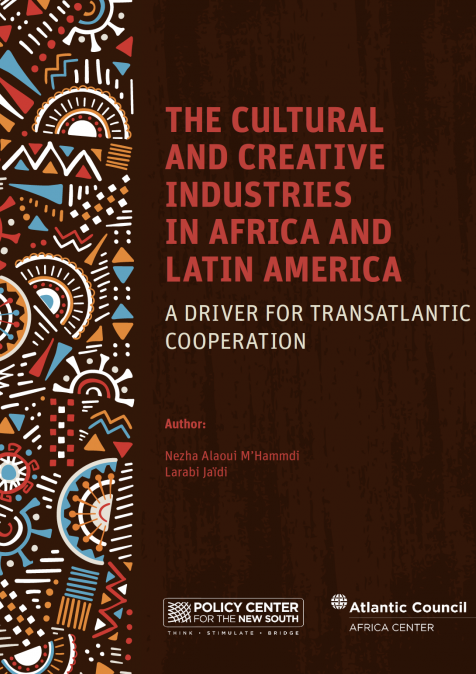Publications /
Book / Report
This report is part of a partnership between the Policy Center for the New South and the Atlantic Council’s Africa Center.
The creative economy is a constantly evolving activity, driven by the cultural industries, which make up a large and interconnected sector. Arts and culture impact the creative economy in major areas: education, innovation, collaboration, and clustering. The cultural industries are one of the most rapidly growing sectors of the global economy. This sector is gaining prominence as a solid path to economic development in less- developed countries, with their focus on culture and creativity as sources of job creation and innovative tools in the quest for sustainable development. However, beyond mere praise for the economic and social benefits that creative industries produce, the soft power that accompany these results should not be underestimated. Creative economies have shifted the international focus from mere economic development to human development. In a fragmented world, widespread insistence on the integration of culture as a catalyst of South-South cooperation is greater than ever.
In many African and Latin America countries, awareness is growing of the important role played by the commercial creative sector and the creative services industries are growing rapidly. Africa and Latin America are going through a transformative cultural revolution. Increasingly, the creative and cultural industries have become a vehicle for soft power in the global competition. On the both sides of Atlantic, a shared African-Latin American cultural history connects people. This article aims to understand how transatlantic cooperation can use the creative and cultural realms to foster collective prosperity. Thus, cooperation must do more to support the creative industries, so that societies can express themselves freely and can form partnerships to employ new technologies that connect cultural industries to markets worldwide.










